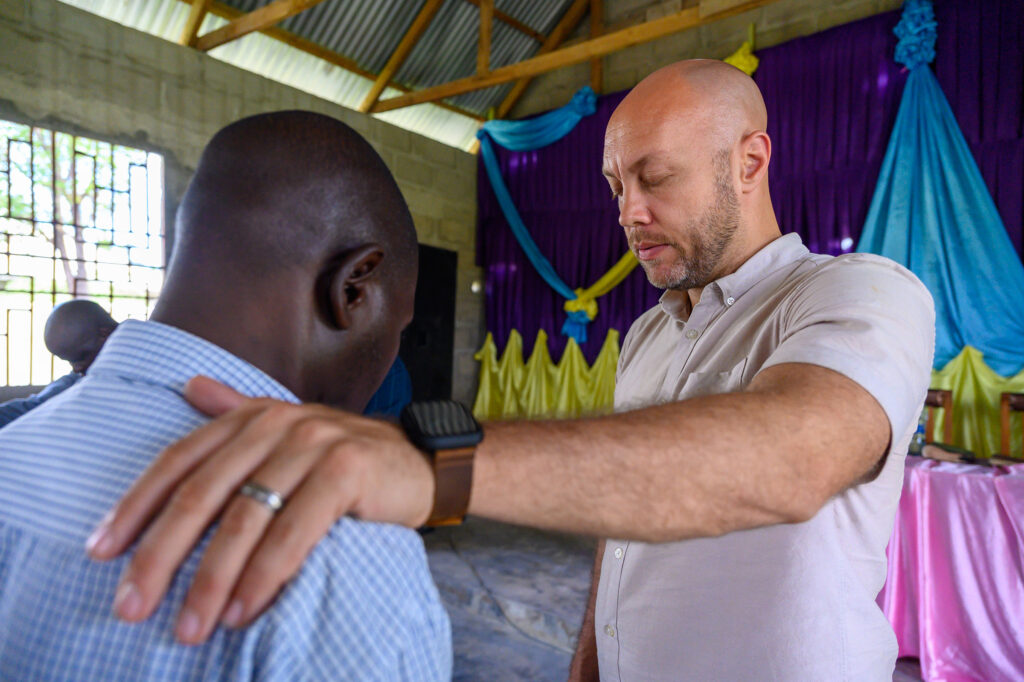Ministry teams, like any other teams, are driven by their culture.
It is the culture of a group of people that determines the nature and substance of their results—even more than do their plans and goals. For this reason, our team in Southeast Asia regularly examines our ministry in light of ABWE’s—and our—strategic values, beginning with esteeming Christ above all else.
Our One Ambition
He is the image of the invisible God, the firstborn of all creation. For by him all things were created, in heaven and on earth, visible and invisible, whether thrones or dominions or rulers or authorities—all things were created through him and for him. And he is before all things, and in him all things hold together. And he is the head of the body, the church. He is the beginning, the firstborn from the dead, that in everything he might be preeminent. For in him all the fullness of God was pleased to dwell, and through him to reconcile to himself all things, whether on earth or in heaven, making peace by the blood of his cross. (Colossians 1:15-19 ESV)
Jesus is without parallel. He is God in flesh, sent to the earth he created and resurrected from the dead that he might always take first place in everything. Through his atoning sacrifice on the cross, he is reconciling all things to himself—including each member of a missionary team.
When we say “Jesus gets first place,” we mean that we let go of any ambition to make a name for ourselves and instead adopt an ambition to make Christ’s name known throughout the world.
If Jesus Doesn’t Get First Place
A ministry team that doesn’t believe and behave as though Jesus gets first place is a terrible team to work with. In this scenario, teammates begin to bolster their confidence through their own efforts and recognition. After all, if Jesus isn’t deeply felt to be primary in our lives and ministries, then we lack the source of our esteem. Christians who don’t place Jesus first often look for some other “Christian” source of esteem, usually in their work or in the people who observe and appreciate their work.
When teammates don’t place Jesus first, they begin to hide their struggles. They no longer behave as suffering sinners clinging to a Savior; they act as employees seeking approval. They often think, “Approval from God would be great, but approval from others will do.”
When Jesus doesn’t get first place, missions metrics begin to supplant affection for him as the measuring stick of godliness. We measure language proficiency, gospel sharing, conversions, baptisms, and church plants, and then we measure our value based upon our achievement.
Local Christians, potential converts, and teammates begin to feel like projects or subjects rather than people whom we love. If we aren’t putting Jesus in first place, we feel the need to fix people, control people, or manufacture results. Those people see it, they feel it, and unfortunately, they sometimes model Christian life and ministry after it.
People who serve on these unhealthy teams find themselves on the giving and receiving end of a broken team culture. They hurt people even as they are hurt by people.
When Jesus Gets First Place
When Jesus gets first place, however, we are increasingly freed to serve in healthy, humble ways. Leaders begin to practice servant leadership. Teammates begin to let go of the need to be a “good missionary,” and local Christians and unbelievers alike begin to feel loved sacrificially and unconditionally. If Jesus is in first place, people aren’t tools for us to get ahead; they’re fellow followers of Christ.
Leaders no longer see themselves as the lynchpin of success for their mission. Jesus gets that honor. The leader is a helpful guide on a mutual path of godly life and service.
Metrics become tools for individual and team growth. They’re used as an opportunity to thank almighty God for his provision and protection of our efforts. Rather than providing the means to compare ourselves to one another, they afford us the opportunity to rejoice together in God’s kind willingness to use us for his glory.
If Jesus is in first place, our words, actions, and lives will point people to Christ to such an extent that they will see him rather than us. They will recognize that we aren’t even in the same league as Christ, just as if a professional athlete appeared on a youth sports field, the kids would stop caring which one of them is best and look at him.
When Jesus gets first place, ministry teammates are more concerned with what God has done than with what they can do. They begin to confess temptation, sin, and doubt—after all, missionaries struggle like all other Christians do, just far away from home. If Jesus is in first place, none of us are winners because we came in first; we all get carried across the finish line.
Local Christians in our host countries will find that when Jesus gets first place in our lives, they will not feel as if we perceive them as inferior to us. Too often we subconsciously reinforce the concept of Western superiority, not because we believe our heritage is superior, but because, deep down, we have no source of true esteem. We seek our esteem through our disciples’ performance like some kind of spiritual Ponzi scheme. But when Jesus is in first place, we point our disciples to Jesus and watch in awe as he transforms them. Jesus gets the honor, and we get the joy of seeing him honored.
If Jesus is in first place, we, our teammates, and local brothers and sisters have inherited esteem and have no need to seek it by grasping for something else. When Jesus is in first place, we are all fellow partakers in his gift of grace.
An Invitation
If you’ve been considering missionary service or are looking for a team to suggest to your church members, we would like to invite you to learn about our team and our opportunities. We take these values seriously and do our best to live and serve by them.





